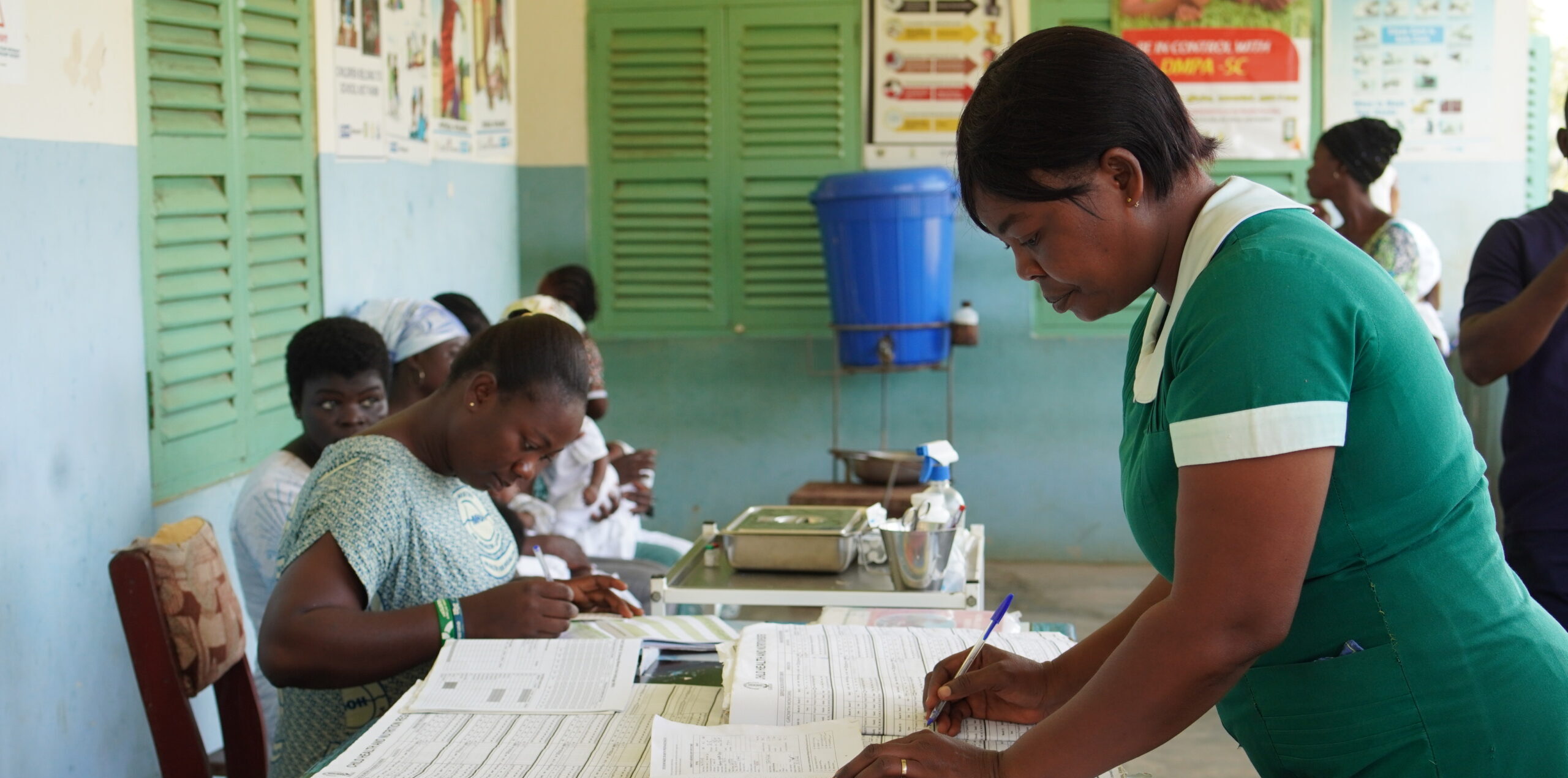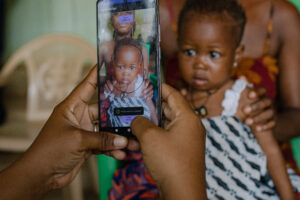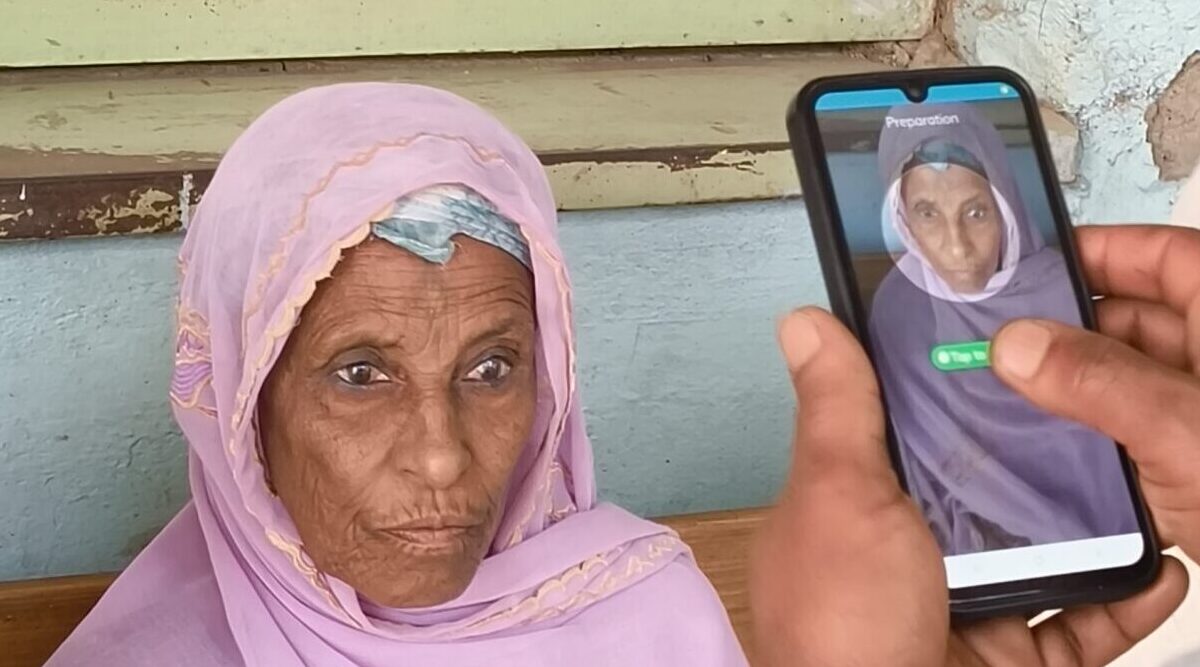Simprints launches new Randomised Control Trial in Ghana

We’re launching an impact evaluation in the Oti region of Ghana to understand the impact of Simprints technology on vaccination coverage. In partnership with the Ghana Health Service, the research is led by Dr. Jessica Cohen from Harvard T.H. Chan School of Public Health, Dr. Elisa Maffioli from University of Michigan School of Public Health and Prof. Chris Guure from the University of Ghana School of Public Health. The project is funded by GDI Solutions and the Weiss Fund.
A first in Ghana: investigating the impact of infant biometrics for vaccine delivery
This new Randomised Control Trial (RCT) will test our hypothesis that biometrically verifying vaccine delivery will generate more accurate, reliable, real-time individual-level data on children who’ve defaulted or missed a vaccine dose. This data can be utilised through targeted voice message reminders and by health workers to identify and follow up with defaulters, thereby increasing coverage of malaria and other routine immunisations.
Principal Investigator Dr Elisa Maffioli (far left) and Research Associate Gustavo Acosta Matos (far right) from University of Michigan School of Public Health join the University of Ghana team to interview caregivers at a vaccination clinic in Ghana.
Using AI-driven technology to strengthen the local health system
Simprints has been working in Ghana since 2020, piloting and developing technology to strengthen the digital health system of the Ghana Health Service. This year, Simprints technology will reach 586 facilities across the Eastern and Oti regions.
Over the last two years, Simprints has transitioned from using caregiver fingerprints as a proxy measure for identifying and verifying the delivery of vaccines and other maternal and child health services, to using face recognition technology specially designed for infants, to verify the delivery of vaccines to children as young as six months.

A baby has her face scanned with the SimprintsID mobile app, so the health worker can locate her digital health record at a clinic in Ghana.
Our theory of change for this trial centres on two parallel strategies, both relying on accurate data generated through a biometric-enabled digital health information system. First, we’re equipping health workers with real-time, accurate lists of children who are overdue for malaria and other life-saving vaccines. This information saves them precious time and helps them quickly and effectively reach the children who’ve missed their appointments. Second, interactive voice reminders (IVR), linked to data in the digital system, are sent directly to caregivers, whenever their child is due or overdue for a vaccine, encouraging them to visit the clinic.
Dr Elisa Maffoli, Associate Professor at University of Michigan, commented: “It’s a privilege to partner with Simprints as we launch this important study. By combining rigorous research with cutting-edge technology, we hope to generate new insights that will support stronger immunisation programs in Ghana and beyond.
This is a key opportunity to learn how digital innovation can support stronger health systems and healthier futures for children.”
How will the trial be carried out?
- This week, a team from the University of Ghana, led by Prof. Chris Guure, will begin fieldwork to enrol a cohort of over 4,000 women in their second and third trimesters of pregnancy, or with infants under six months, across the Oti region and collect data on their vaccination status.
- The catchment communities of 131 health facilities across seven of the nine districts of the Oti region, where the mothers live, have been randomly assigned to control and treatment groups.
- The cohort of mothers will be surveyed again at 12 and 24 months to identify the effect of Simprints’ intervention.
The RCT will measure several specific outcomes
- Completion of the full four-dose malaria sequence
- Completion of the full routine childhood vaccination sequence
- Timeliness of vaccine delivery
- Facility Vaccine Data Accuracy
We’re looking forward to working with our partners on this innovative research and delving into the findings during 2026.



